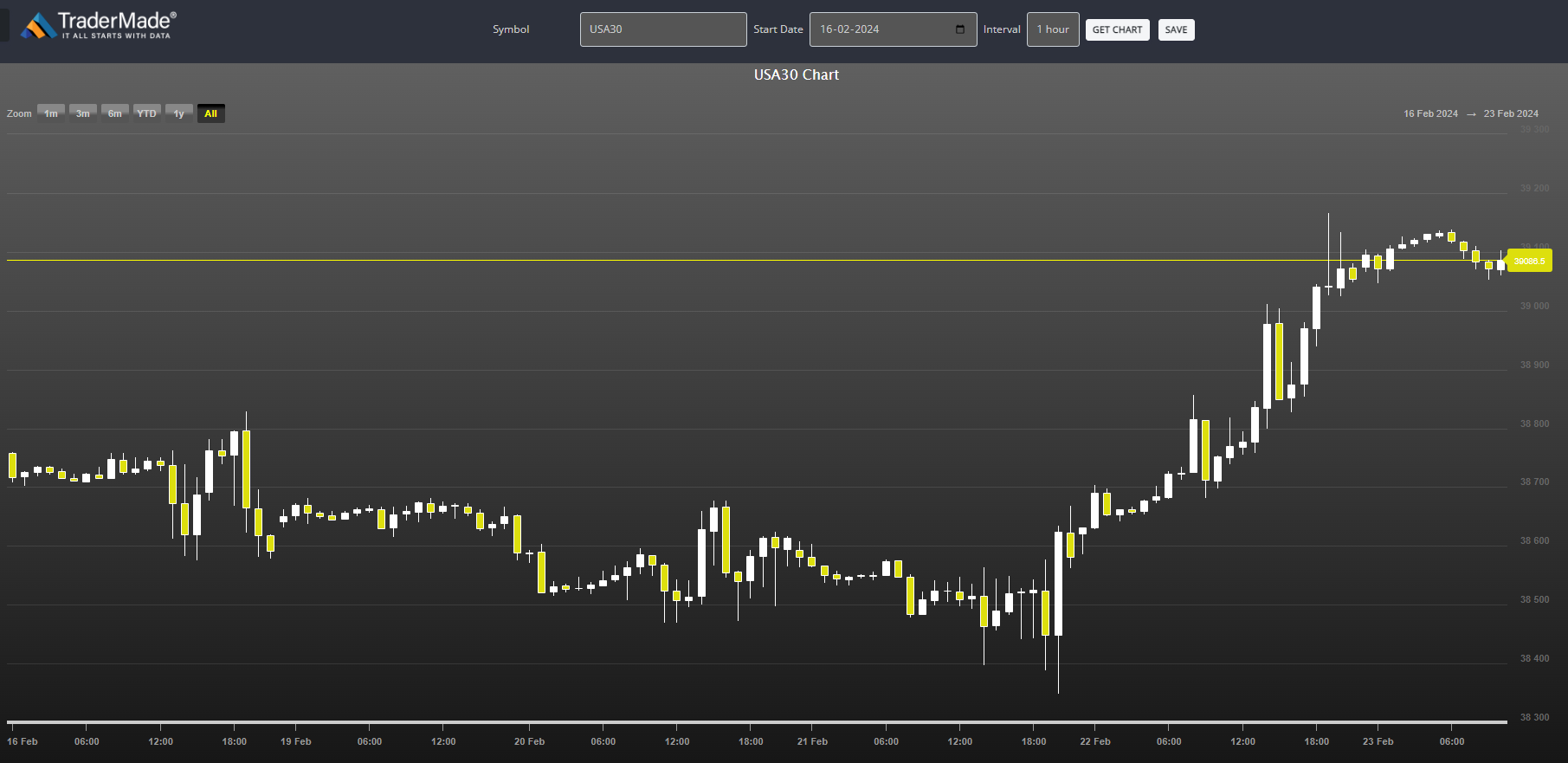
US Households Hold 40% In Equities
London: 23 February 2024 (TraderMade): US savers shackle up with stocks like never before despite the whispers of overvaluation and looming risks. But is this a passionate romance destined for forever or a fleeting fling fuelled by inertia and past performance?
Key Takeaways
- US households hold 40% of their savings in stocks despite potential risks.
- Passive investing and outperformance may explain the trend, not strategic allocation.
- Experts warn against selling at record highs but with caution.
- Demographic shifts and rising interest rates could lead to future changes.
Market Mania
The S&P 500 and Dow Jones soared to record highs this week, fueled by Nvidia's explosive earnings report and AI optimism. But beneath the surface, a deeper trend suggests US savers' love affair with equities might be cooling down.
Love at First Sight (or Sight of Returns)?
A recent study reveals a surprising fact: US households are more invested in stocks than ever, holding 40% of their savings in equities. This scenario flies in the face of conventional wisdom, especially considering rising valuations and potential risks. But what explains this trend?
Inertia, Hope, and a Touch of Laziness
Experts suggest the answer might lie in a mix of inertia, satisfaction with past returns, and a passive approach to investing. Unlike professional investors who actively manage portfolios, many households "go with the flow," letting their investments ride the market wave.
The Compound Effect
Over the past 40 years, US equities have delivered impressive returns, averaging nearly 11% annually. Let investments compound without actively switching, explaining the significant rise in stock ownership. But is this sustainable?
Dow Jones Surges Past 39,000, But Weekly Gains Modest
The Dow Jones Industrial Average (USA30) ended the week on a high note, closing at a record 39,088.82 on 23 February. However, looking beyond the headline, the weekly performance paints a slightly different picture.
While the index did manage to gain 5.09% overall, the bulk of that increase came on a single day: Thursday, 22 February, which saw a surge of 1.18%. The remaining days of the week were relatively flat, with the index dipping slightly on Tuesday.

This trajectory suggests that the recent rally may be more sentiment-driven, fueled by positive news from companies like Nvidia, rather than a broader economic trend. It's important to remember that short-term fluctuations don't necessarily translate into long-term trends, and investors should remain vigilant and conduct their research before making any investment decisions.
A Cautionary Tale
While history suggests cashing out at record highs might be detrimental, the current market climate warrants some caution. Overvaluation, narrow leadership, and potential macro shifts could pose challenges in the future.
Looking Ahead
Demographic changes like aging populations and rising interest rates could lead to a shift in investment behavior. While a significant pullback from equities isn't imminent, investors should be aware of potential risks and diversify accordingly.



